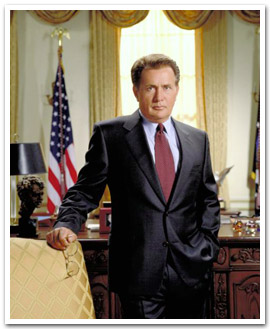 Gerber says...
Gerber says...In an online interview, writer Steve Gerber says what he thinks is wrong with the industry:
 Gerber says...
Gerber says...
In an online interview, writer Steve Gerber says what he thinks is wrong with the industry:
What similarities do you see between comics and the comics industry when you started?
The industry is every bit as closed-minded now as it was 28 years ago. Maybe more so. The major difference today is that the same rigidity has infested the fans and the retailers, and brought the industry to the edge of extinction.
What examples of close mindedness then and now come to mind?
When I started in comics, the buzzword I heard most frequently from editors and other writers was "commercial." This writer, that artist, such-and-such a series was either "commercial" or "uncommercial." "Commercial" didn't mean that the writer, artist, or series necessarily did well in the marketplace, but rather that they conformed to certain conventions of the medium and therefore should do well. "Commercial" writers got all the plum, high-visibility assignments. "Uncommercial" writers were usually shunted off to marginal books, where it was assumed they could do less harm. There were even instances where one of those marginal books would suddenly attract attention and start to sell, and the writer would be replaced with someone the company considered more "commercial," on the theory that that person would be better able to sustain the success.
Now, that sounds horrible and very stifling, and it was. But in those days, the definition of "commercial" was at least broad enough to encompass a fairly wide range of material. AVENGERS was commercial, but so was MASTER OF KUNG FU. SPIDER-MAN was commercial, but so were CONAN, TOMB OF DRACULA, and WEREWOLF BY NIGHT. Roy Thomas and Gerry Conway were probably considered the two most consistently commercial writers of the day, but there was also room under that rubric for styles as diverse as those of Doug Moench, Steve Englehart, Marv Wolfman, Archie Goodwin, Len Wein, Jim Starlin, and any number of others. And the industry could at least appreciate and find a place for creators whose work was rarely, if ever, conventional.
Today, the definition of "commercial" would be limited to one genre: superheroes. And, really, to only one way of presenting superheroes, relentlessly upbeat, with lots of fight scenes, and every story hinging on the minutiae of past continuity. And even today, writers who take a different path are still considered "uncommercial," whether their superhero books are successful or not. I seem to recall reading something about Grant Morrison wanting to do an overhaul of Superman, and DC turning him down, even after his spectacularly successful run on JLA, because they thought his approach would be too unconventional. (All this applies to artists, too, by the way. It's just my natural inclination to think in terms of the writing first.)
Was the fan scene as conservative when you started to write as it seems to be now? And what impact has this had on the state of the business?
The major difference today is that the same rigidity has infested the fans and the retailers, and brought the industry to the edge of extinction. Something else that's changed drastically since the '70s is the role of fandom. It used to be an axiom that fans embraced the more experimental material, whereas readers -- the casual newsstand buyers of comics -- were more apt to like the more conventional stuff. Calling a book a "fan-favorite" was a back-handed compliment in those days. It meant that the book had a devoted, but small following.

Well, there are no casual buyers of comics anymore. People don't pick them up at newsstands or drug stores, because in most parts of the world, they aren't sold there. The audience is now limited to the people who patronize the comic book shops, and since the comic book shops don't sell, or order, much of anything besides superhero comics, the hardest-core superhero fans now constitute virtually the entire readership of comics. And the hardest-core superhero fans have always been extremely conservative. They want their heroes portrayed without ambiguities. They consider humor anathema in comics, because it strikes them as "kid stuff." Basically, they want comic books to be corn flakes, with the flavor and texture uniform and unvarying from one box to the next. And, since the Crash of '93, when most of the speculators abandoned ship, and dealers cut back drastically on their orders of everything except the top-selling books, that's what the publishers have been providing. Corn flakes.
By doing so, the publishers and the retailers have collaborated to drive away any customers who might be more interested in Cheerios, Rice Krispies, Wheat Chex, or Froot Loops. The creators haven't exactly helped things, either, what with their recent penchant for rehashing old stories.
All of this might not matter if the superhero readership were growing, but it isn't. It's shrinking month by month. Kids don't give a rat's ass about men in tights anymore, and adults are only interested in them for the occasional dose of nostalgia. They'll happily go to a Batman movie once every couple of years, but they're not going to follow a Batman comic book on a monthly basis.
So, comics today appeal only to the rarefied sensibilities of a diminishing readership, and any attempt to appeal to a wider audience is thwarted by a distribution system which can no longer reach beyond superhero fans. What does that tell you about the state of the industry?
Casey says...
A few like-minded quotes from an interview with Joe Casey of WILDCATS and X-MEN: CHILDREN OF THE ATOM:
What we're doing on WILDCATS is how we think "superhero" comics are going to survive in the Twenty-First Century. It's time to clear out all the old fart, spandex nightmare, pro wrestling crap that the mainstream has been trying to pass off as entertainment and get down to the business of making comics vital again! We're out to offend the conservatives...the ones clinging to the Silver Age like a fuckin' life preserver. Well, guess what, fellas...that ship is sinking fast. From now on, it's character instead of costumes, futurism instead of nostalgia, actual stories instead of pointless continuity maintenance, visionary creators instead of hacks who don't know what century it is. I'm really not interested in trying to recreate my—or anyone else's—childhood with the comics I'm writing. It's time to write the next chapter in mainstream comics.
Any personal beliefs on why the industry's in a slump?
Short-sighted publishers and an atrophied distribution system. Put 'em together and you're ultimately headed for a dead end. I think there are enough quality books out there right now, that if we only had a way of getting them to a wider audience, we'd be just fine, market health-wise. It seems to me that, generally, the creators are doing their part -- providing good work -- so it's up to the publishers, distributors and retailers to step up to the plate. What are they waiting for...?
Besides that, I think the format of comics is pretty outdated, as well. 22 pages of story per month for the money publishers are asking, it's pretty obscene packaging. Not to mention that the size, format, etc. is, to me, the major cause of the general public's bias against comics. The comic MEDIUM is going strong, progressing nicely, but the way we present them has, for me, outlived its usefulness.

Others agree
Writer Chuck Austen and others support the previous views. From Comic Book Resources, 11/15/02:
Keeping It 'Real': Chuck Austen, Andi Watson & Terry Moore Talk About 'Non-Spandex' Comics
And as one might imagine, Austen isn't too kind to fans whose main criticisms of non-superhero comics is that they're boring because all they do is remind people of what goes on in their lives daily. "My response to this comment is, comics fans are a minority in the real world. We're talking, maybe, 100,000 people, tops, that think the real world is boring or depressing and only want more fantasy superhero stuff. There are over a million people every week who watch 'The West Wing' who find the real world fascinating and engaging. So would you say comics fans are right? Maybe as far as the comic market is concerned, yes, but overall, not in the least.
"This is a good question, and a hilariously ironic one, when you think about it. It goes back to the fantasy-oriented marketplace we're stuck with. The inevitable conclusion to the changes in the marketplace, focusing on the direct market, losing impulse buys and new, young readers in 7-11's and drugstores across the country, is that the only readers we have left are die-hard fantasy superhero fans who will go to whatever lengths they feel they have to in order to get their superhero books. Many travel long distances to get to the one place that carries comic books near them.
"We largely keep spiraling inward and downward toward the more hard-core versions of those fans, the fans who continue to buy out of habit and complete collections or because they're wannabe's who still hold out hope of one day writing the 'X-Men,' and don't stop buying no matter how bad the books get, as far as entertainment value is concerned.
.
.
.
But when it comes down to Chuck Austen's opinion on the issue, he believes that in no uncertain terms, non-fantasy comics are needed to get people interested in comic books. "Because there are people in the real world, people who don't go into comics shops, who don't like fantasy, but enjoy real world stuff. Fantasy and science fiction are still considered fringe markets in most 'real world' places like bookstores and video/DVD stores. If we ever want more than our insular industry, we need to nourish those creators who are willing to do something different, something 'real.' If fantasy were the be-all and end-all, it's all we'd see on television. But with 'Friends' as the number one show, and 'ER' and 'West Wing' in the Top Ten, and 'Star Trek' somewhere down around 100th in the ratings, you have to know that outside of comics shops, fantasy isn't the last word in creativity. Reality is.
Rob's comment
I couldn't agree more with all these opinions.
Related links
The future of comics
|
. . . |

|
All material © copyright its original owners, except where noted.
Original text and pictures © copyright 2007 by Robert Schmidt.
Copyrighted material is posted under the Fair Use provision of the Copyright Act,
which allows copying for nonprofit educational uses including criticism and commentary.
Comments sent to the publisher become the property of Blue Corn Comics
and may be used in other postings without permission.